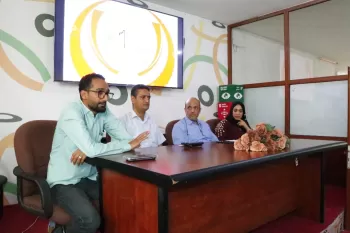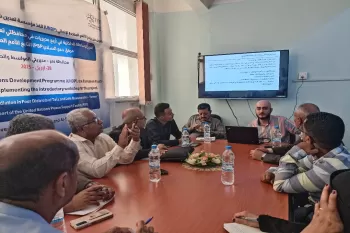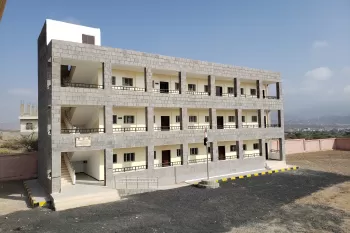Development and Ethical Dimension of Humanitarian Action Localization
In its true sense, human action is based on a moral philosophy designed to safeguard human dignity by eliminating hunger, poverty and deprivation, meeting the needs of needy people and enabling them to live in dignity.
We have a great material legacy of international conventions and charters, international humanitarian law, the "Grand Bargain," the "Charter for Change," human development reports, UN statements and declarations emanating from the global summits on humanitarian aid to developing countries and their assistance in bringing about the desired change and growth.
In line with this, the eight Millennium Development Goals emerged from the UN Universal Declaration, agreed upon and signed in 2000 by 192 Member States and 23 international organizations, which emphasized the promotion of development efforts and committed Member States to fight poverty, hunger, disease and discrimination, and urged attention to education, health, environmental improvement and a global partnership for development (as stipulated in MDG VIII).
Despite the importance and magnitude of the material heritage, legislation and supportive policies to fight poverty and unemployment and to promote and develop human development mechanisms, the gap remains large between the commitments and conventions made by the economically developed Member States, stipulated in international conventions and declarations, and the actual fulfilment of those commitments. The major donor countries have not fulfilled their commitments to deduct 0.7 percent of GDP in favor of development assistance to developing countries.
The time has come to fulfil the commitments and conventions of donor countries. Wars and disasters have left millions of poor, hungry and displaced. More than ever before, we need to stop wars and conflicts, establish peace, expand humanitarian response, strengthen humanitarian mechanisms in order to achieve our great goals, improve access to beneficiaries and achieve the desired benefits. In fairness, local CSOs have a great capacity to reach the targets and in the most difficult and dangerous circumstances, as they are established in the environment itself, and characterized by extensive relationships with the actual beneficiary stakeholders of their activities.
One of the key entry points for achieving the Sustainable Development Goals, in my view, is the Localization of Humanitarian Action, through which the benefit of humanitarian response is maximized and the mechanisms for reaching the targets and recovery assistance process are improved, and thus empowerment and sustainability.
I believe that, based on the terms of the "Grand Bargain" and the "Charter for Change," the most important needed steps to localize humanitarian action are through:
- Establishing genuine partnerships between major donors and their partners of UN and international organizations and agencies with local CSOs, so that these partnerships go beyond the implementation as an implementing local mediator to partner in planning, policy-making, needs identification, capacity building, experience localization and skills acquisition, thereby creating and implementing innovative ideas and achieving continuity and sustainability.
- Increasing funding to local organizations, facilitating access to direct donors and alleviating obstacles and restrictions.
- Adopting the principles of transparency, disclosure and accountability.
- Involving stakeholders in discussions, planning, needs and priorities.
Dr. Ali Al Buraihy
Professor of Communication – Sana’a University
Member of TYF Board of Trustees




